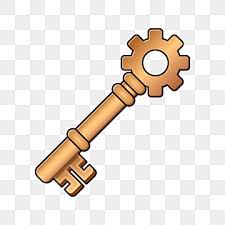Game Keys, also known as a product key or activation key, is a unique alphanumeric code used to activate or unlock a video game. These keys are typically provided when a game is purchased digitally, either through platforms like Steam, Epic Games Store, or directly from publishers. Once entered, the key verifies the purchase and grants the user access to the game.
Types of Game Keys
- Single-Use Keys: Most common for digital games, these keys can only be used once to activate the game on a specific platform. After activation, the key becomes invalid.
- Multi-Use Keys: Occasionally, developers provide multi-use keys for promotional purposes, allowing multiple users to access the same game for a limited time.
- Beta Access Keys: These are temporary keys given to players to access beta versions of games, enabling them to test features before the official release.
- DLC Keys: Downloadable Content (DLC) keys unlock additional content for a game, such as expansion packs, character skins, or other in-game items.
How Game Keys Work
Game keys are typically generated by the game publisher or developer and are linked to their digital distribution platform. Here’s how the process generally works:
- Purchase: When a user purchases a game from a digital store, they receive a unique game key.
- Activation: The player enters the key into the platform (like Steam or Origin). The system verifies the key against its database.
- Access Granted: Upon successful verification, the user gains access to download and play the game.
- Account Linking: In most cases, the game key is tied to the user’s account on the platform, ensuring that only they can access the game.
The Significance of Game Keys
1. Anti-Piracy Measures
Game keys serve as a vital anti-piracy tool for developers. By requiring a unique key for activation, publishers can deter unauthorized distribution and ensure that players are accessing legitimate copies of the game.
2. Market Control
Game keys allow developers and publishers to control the distribution of their games. They can manage promotions, sales, and bundling offers while tracking which keys are being activated and by whom.
3. User Accountability
Since each key is unique, they help maintain accountability. If a user engages in misconduct (like cheating or harassment), developers can revoke access based on the account linked to the key.
4. Convenience for Players
Game keys streamline the purchasing process for players. Rather than needing physical media, users can easily purchase and activate games digitally, making it more accessible to a global audience.
Tips for Managing Game Keys
- Keep Keys Secure: Treat your game keys like passwords. Store them securely to avoid unauthorized use.
- Check Platform Policies: Be aware of the activation policies for different platforms, as some may have specific rules regarding key sharing or transfers.
- Be Cautious with Third-Party Sellers: If purchasing from third-party websites, ensure they are reputable to avoid scams or invalid keys.
- Utilize Key Management Tools: Consider using key management tools or password managers to store and organize your game keys securely.
Conclusion
Game keys are an integral part of the digital gaming landscape, providing a means for players to access and enjoy their favorite titles securely and conveniently. Understanding how they work and their significance helps gamers navigate the complexities of digital distribution while ensuring they are accessing legitimate copies of their games. As the gaming industry continues to grow and evolve, game keys will remain a fundamental aspect of the gaming experience, unlocking a world of entertainment for players around the globe.




